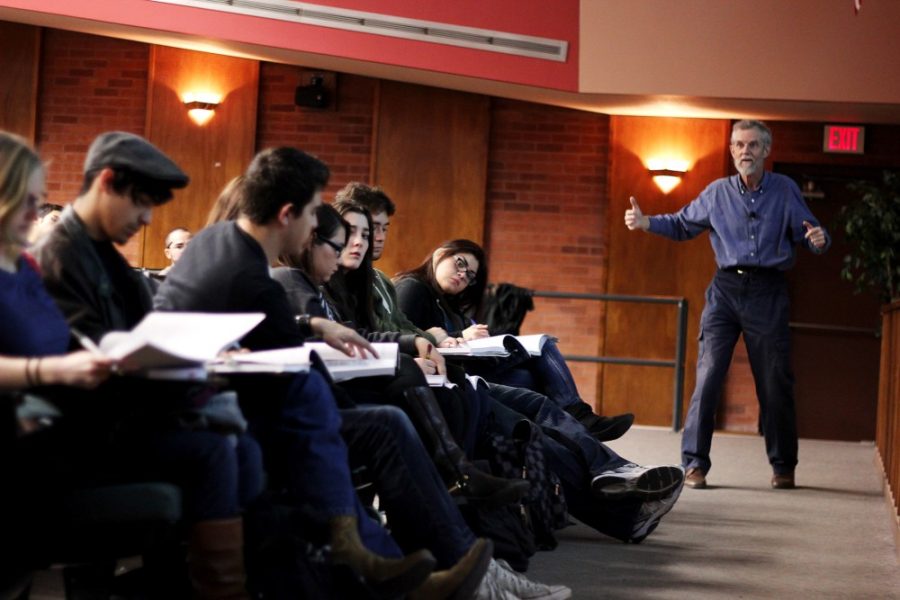A new minor being offered at the UA is taking students back in time.
The thematic minor in Medieval Studies allows students to study the Middle Ages from a broad perspective, according to Fabian Alfie, head of the Department of French and Italian.
The minor is housed by the Colleges of Letters, Arts and Science. The Medieval Studies minor was approved in late December as an interdisciplinary minor. The Interdisciplinary Studies Program allows students to study and earn degree credit in multiple subjects, from literature to history, religion, philosophy, music and political science.
Albrecht Classen, professor of German studies and chair of the University of Arizona Medieval, Renaissance and Reformation Committee, said he was inspired by the minor in Hip-Hop Studies when he decided to create the new Medieval Studies minor in collaboration with Alfie.
Alfie said he and Classen wanted to introduce a minor that would pull together coursework from different areas.
The minor requires students to take at least 18 units, with nine of those units being upper division courses.
“[The minor is] trying to give students a sense of a certain cultural period,” Classen said.
Courses for this minor range from Periods in Chinese History: New Empire: 750-1350 AD, to courses such as Italian Literature in Translation: The Middle Ages and “The Divine Comedy” by Dante, just to name a few.
“[This] allows [students] to combine — in a unique way — philosophy, religion, art history, literature and economics,” Classen said. “There is a lot of flexibility, yet with a concrete focus on a cultural period.”
Outside of coursework, there are opportunities for students to study abroad and explore the art of the Middle Ages. This opportunity is not only available overseas, but also here in Arizona, according to Classen.
“I went on a medieval studies summer trip this past summer with Dr. Classen and it was one of the best trips of my life,” said Laura Unklesbay, a senior studying German studies and political science.
“I learned so much about medieval life, literature and architecture. Learning about the medieval studies minor makes me wish that I had more time in college to get the minor for myself. I think it is a wonderful opportunity.”
Classen and Alfie said they hope to see this new program grow into something bigger, maybe even a major, and the interest from students is giving them hope.
“If I could say anything about professor Classen’s class, I’d say that it is … extremely stimulating to discuss the literature that was written many years ago,” said Christopher Proefrock, a biochemistry major. “There is a clear resemblance of issues that we face in today’s world, and the issues faced in the medieval time era.”
Classen said it is important to study this period in human history because of the impact it has on our own time.
“Many didactic writers formulated ideas of timeless value, teaching us in many ways about the proper way of life,” Classen said. “There are many contradictions and paradoxes in the Middle Ages, but it was certainly the cradle of our own world.”









